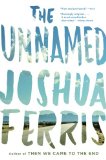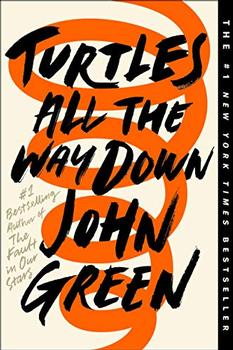Summary | Excerpt | Reading Guide | Reviews | Beyond the book | Read-Alikes | Genres & Themes | Author Bio

Critics' Opinion:
Readers' Opinion:
First Published:
Jan 2010, 320 pages
Paperback:
Sep 2010, 336 pages
 Book Reviewed by:
Book Reviewed by:
Norah Piehl
Buy This Book
Is it a physical ailment, or a psychosis? This is just one of the many questions that readers - like the Farnsworths themselves - will grapple with as they read The Unnamed, Joshua Ferris's devastating second novel. From the moment that Tim tells his wife Jane that "It's back," Tim - not to mention his wife and their disaffected daughter Becka - is off on a journey in and out of despair, confusion, and unanswered questions.
Tim, a successful Manhattan lawyer, is beset periodically by a compulsion to walk - in all weather and without a particular aim in sight. He walks until he collapses in exhaustion and falls asleep, often waking in sketchy alleyways, on frosty park benches, or in hospitals. While Tim walks like a man possessed, Jane repeatedly conducts her own, more frantic, journey - to find Tim and help him before his compulsion leaves him physically or mentally destroyed. Despite the couple's best efforts, however - which include having him wear snow boots to stave off frostbite and carry a backpack filled with warm clothing, not to mention more extreme measures like handcuffing him to their bed - Tim's compulsion recurs again and again through the course of their long, troubled, but loving marriage.
Tim's overwhelming impulse comes and goes; like his directionless walking, Tim circles back to his wife, family, and job when he is well, trying to maintain the ambitious, comfortable, happy life he had worked so hard to achieve. Each time he returns, his relationship with Jane is a bit different, making their story a powerful metaphor for the constant evolution of even the most mundane long-time marriage, even as it toes the line of absurdity:
"They stared into the essential mystery of each other, but felt passing between them in those moments of silence the recognition of that more impossible mystery - their togetherness, the agreement each made that they would withstand the wayward directions they had taken and, despite their inviolable separateness, still remain."
As Tim and Jane drift apart, literally, and come back together again repeatedly, each time trying with increasing desperation to reclaim each other, their story is a potent reminder of the combination of individuality and commonality that characterizes married life.
At times, reading The Unnamed feels a bit like accompanying Tim on one of his involuntary walks - aimless, increasingly desperate, without an end in sight. In that way, the narrative style and structure perfectly echoes the novel's theme. Readers who, like Jane at times, are searching for answers to Tim's condition, may grow impatient with Tim's seemingly endless peregrinations. Most readers, however, will be drawn into Ferris's poetic, empathetic accounts of Tim's journeys and returns, and they will willingly join the author on his journey of exploration into one man's mysterious, heartbreaking decline.
Joshua Ferris's first novel, Then We Came to the End, achieved near-universal acclaim. For many young novelists whose debut novels are huge successes, the second novel can seem forced, disappointing both fans and critics. The Unnamed is both a surprising departure from the satirical social commentary of Ferris's debut and a second novel that - in its more personal focus and introspection - surpasses its predecessor.
![]() This review was originally published in The BookBrowse Review in February 2010, and has been updated for the
November 2010 edition.
Click here to go to this issue.
This review was originally published in The BookBrowse Review in February 2010, and has been updated for the
November 2010 edition.
Click here to go to this issue.

If you liked The Unnamed, try these:

by Jonathan Franzen
Published 2022
Jonathan Franzen's gift for wedding depth and vividness of character with breadth of social vision has never been more dazzlingly evident than in Crossroads.

by John Green
Published 2019
#1 bestselling author John Green returns with his first new novel since The Fault in Our Stars!





The House on Biscayne Bay
by Chanel Cleeton
As death stalks a gothic mansion in Miami, the lives of two women intertwine as the past and present collide.

The Flower Sisters
by Michelle Collins Anderson
From the new Fannie Flagg of the Ozarks, a richly-woven story of family, forgiveness, and reinvention.

The Funeral Cryer by Wenyan Lu
Debut novelist Wenyan Lu brings us this witty yet profound story about one woman's midlife reawakening in contemporary rural China.
Your guide toexceptional books
BookBrowse seeks out and recommends the best in contemporary fiction and nonfiction—books that not only engage and entertain but also deepen our understanding of ourselves and the world around us.